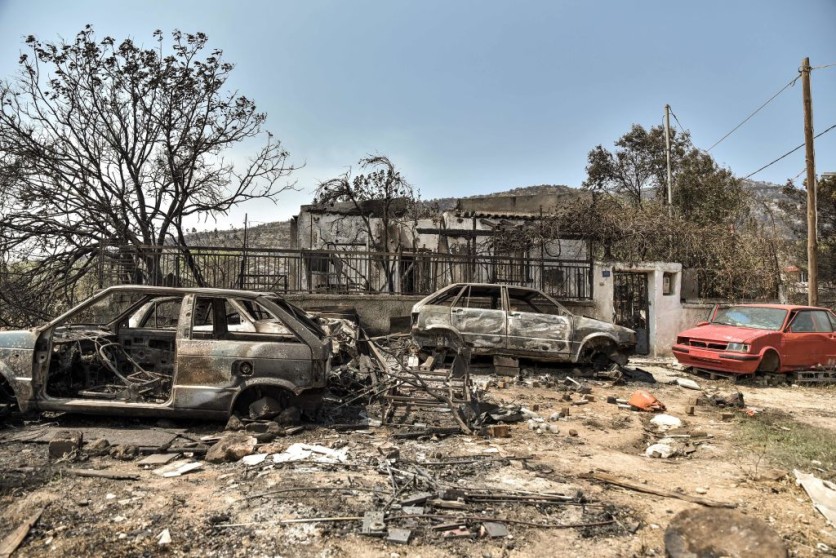A forest inferno in Greece has been declared the largest wildfire ever documented in the EU, prompting the bloc to mobilize almost half of its firefighting air fleet to combat the blaze, said a European Commission spokesperson on Tuesday.

Greece Wildfire: An 'Ecological Disaster'
In a span of 11 days, AFP reported that firefighters have been grappling with the wildfire in northeastern Greece. This crisis has claimed the lives of at least 20 individuals and triggered what experts label as an "ecological disaster."
Responding to the situation, the EU has dispatched 11 planes and one helicopter from its airborne fleet, together with 407 firefighters, to assist Greece in subduing the flames located north of Alexandroupoli city, revealed spokesman Balazs Ujvari.
The EU's civil protection agency has revealed that the wildfire has consumed a vast expanse of land measuring more than 810 square kilometers (310 square miles), an area larger than New York City.
The agency conveyed that this wildfire is the most extensive the EU has encountered since the commencement of data recording by the European Forest Fire Information System (EFFIS) in 2000.
Since the wildfire started on August 19, the remains of 20 individuals have been discovered, with 18 of the victims being migrants, including two children, found in a region frequently exploited as an entry point from Turkey.
Authorities from Greece's fire service have told AFP that the blaze remains out of control within the confines of the northeast region's Dadia National Park.
In this tumultuous landscape, forest ranger Dora Skartsis reflected on a prior catastrophe in 2011, lamenting that "everything that was regenerated since has been lost" over the last few days.
Skartsis, who also heads a group focused on safeguarding biodiversity in the region, emphasized the magnitude of the disaster, saying that it is a huge ecological disaster.
This forest holds a crucial economic role, supporting logging, beekeeping, and tourism in Evros, one of Greece's economically disadvantaged regions.
EU Deploys a Fleet of 28 Aircraft
Currently, the European Union utilizes a fleet of 28 aircraft, including 24 planes equipped for water-dropping operations and four helicopters, provided by member countries to combat fires within the EU and neighboring regions.
Initiatives are reportedly in progress to establish an autonomous air wing funded by the EU, consisting of 12 aircraft, with a projected operational readiness by 2030.
Bringing attention to the increasing severity of fires, Kostas Dounakis, head of the local cattle breeders' association, told AFP that when analyzing the annual figures from recent years, discernible patterns exist that are not necessarily advantageous, thereby necessitating a stronger capacity at the level of member states.
Greece has faced a series of wildfires this summer, with authorities attributing them to the impact of climate change. The deployment of the EU's air resources emphasizes the commission's commitment to swift and effective collective response during times of crisis, according to Janez Lenarcic, the EU's commissioner for crisis management.
Greek Prime Minister Kyriakos Mitsotakis also met with several ministries on Tuesday to formulate plans for the upcoming reforestation of the affected area once the fire is under control.
Related Article : How Much Heat Can Your Body Take? Scientists Reveal the Maximum Limit


![Apple Watch Series 10 [GPS 42mm]](https://d.techtimes.com/en/full/453899/apple-watch-series-10-gps-42mm.jpg?w=184&h=103&f=9fb3c2ea2db928c663d1d2eadbcb3e52)


